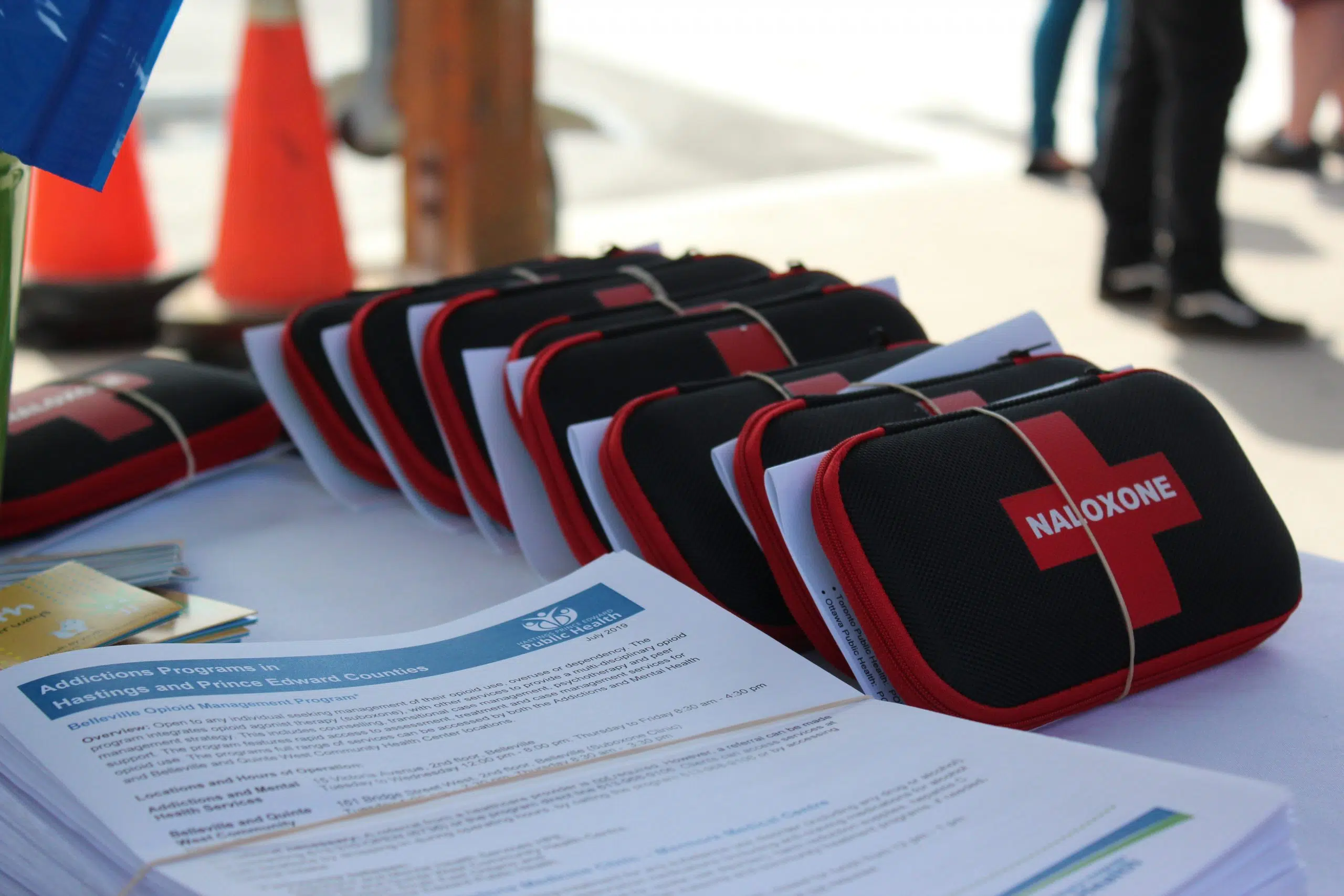The health unit serving Northumberland County is issuing advice to help reduce the risk of drug overdoses.
Basically the advice is – never use drugs while alone.
That potentially life-saving reminder is being shared by the Haliburton, Kawartha, Pine Ridge District Health Unit in the wake of separate overdose incidents over the past week in the City of Kawartha Lakes.
Substance and Harm Reduction Coordinator Catherine MacDonald says using substances alone can be dangerous as it may increase the risk of an overdose.
MacDonald says that person can call for emergency assistance or provide Naloxone if the need arises.”
The health unit statement is below:
Never use alone.
That simple, potentially life-saving reminder is being shared by the Haliburton, Kawartha, Pine Ridge District Health Unit in the wake of separate overdose incidents over the past week in the City of Kawartha Lakes. While these overdose incidents are unrelated, factors that may have contributed include a potent drug supply and using alone.
“While physical distancing and isolating are necessary to slow COVID-19, using substances alone can be dangerous as it may increase the risk of an overdose,” says Catherine MacDonald, a Registered Nurse and Substances and Harm Reduction Coordinator with the HKPR District Health Unit. “Using with a buddy can greatly reduce the risk, since someone else is there to call for emergency assistance or provide naloxone if the need arises.”
Naloxone is an emergency medicine that temporarily reverses the effects of an opioid overdose until the victim can get to hospital for treatment. The Health Unit and many local pharmacies provide free naloxone kits, and additional pickup points are also listed on the Ontario government website (www.ontario.ca/naloxone).
MacDonald says anyone who intervenes in an overdose situation is protected under the law. The Good Samaritan Act protects anyone trying to help in an emergency from possible legal repercussions, while the Good Samaritan Drug Overdose Act protects people on the scene of an overdose from being charged for possessing or using drugs.
If someone cannot or does not feel comfortable using drugs with someone else, there is another resource that can help. The National Overdose Response Service (NORS) virtual safe consumption – available at 1-888-668-NORS (6677) – lets people who use drugs connect with a NORS representative online or by phone. In an emergency, NORS can then be there for the person should a call for assistance be needed. “The National Overdose Response Service provides confidential, non-judgmental support whenever and wherever someone uses drugs,” MacDonald says. “It’s a great support service that has already saved many lives.”
If someone is using drugs, the Health Unit promotes these important safety tips:
- Test a small amount of drug before you use. In many cases, overdoses can result from a contaminated or poisoned drug supply, of inconsistent or increased potency, causing more severe overdose reactions.
- Never use alone. If you are alone, contact NORS for support, or use a buddy system and call a friend.
- Ensure that emergency services can be contacted in the event of an overdose.
- Avoid mixing your drugs.
Signs of an overdose include: very large or very small pupils, slow or no breathing, cold and clammy skin, blue or purple fingernails or lips, and snoring or gurgling sounds. Often in drug overdoses, it is also difficult to wake up the person.
“While these overdose incidents are unrelated, factors that may have contributed include a potent drug supply and using alone. While physical distancing and isolating are necessary to slow COVID-19, using substances alone can be dangerous as it may increase the risk of an overdose,” says Catherine MacDonald, a Registered Nurse and Substances and Harm Reduction Coordinator with the HKPR District Health Unit. “Using with a buddy can greatly reduce the risk, since someone else is there to call for emergency assistance or provide Naloxone if the need arises.”
Naloxone is an emergency medicine that temporarily reverses the effects of an opioid overdose until the victim can get to hospital for treatment. The Health Unit and many local pharmacies provide free Naloxone kits, and additional pickup points are also listed on the Ontario government website (www.ontario.ca/naloxone).
MacDonald says anyone who intervenes in an overdose situation is protected under the law. The Good Samaritan Act protects anyone trying to help in an emergency from possible legal repercussions, while the Good Samaritan Drug Overdose Act protects people on the scene of an overdose from being charged for possessing or using drugs.
If someone is using drugs, the Health Unit promotes these important safety tips:
- Test a small amount of drug before you use. In many cases, overdoses can result from a contaminated or poisoned drug supply, of inconsistent or increased potency, causing more severe overdose reactions.
- Never use alone. If you are alone, contact NORS for support, or use a buddy system and call a friend.
- Ensure that emergency services can be contacted in the event of an overdose.
- Avoid mixing your drugs.
Signs of an overdose include: very large or very small pupils, slow or no breathing, cold and clammy skin, blue or purple fingernails or lips, and snoring or gurgling sounds. Often in drug overdoses, it is also difficult to wake up the person.
Naloxone is an emergency medicine that temporarily reverses the effects of an opioid overdose… until the victim can get to hospital for treatment.
The Health Unit and many local pharmacies provide free Naloxone kits.






